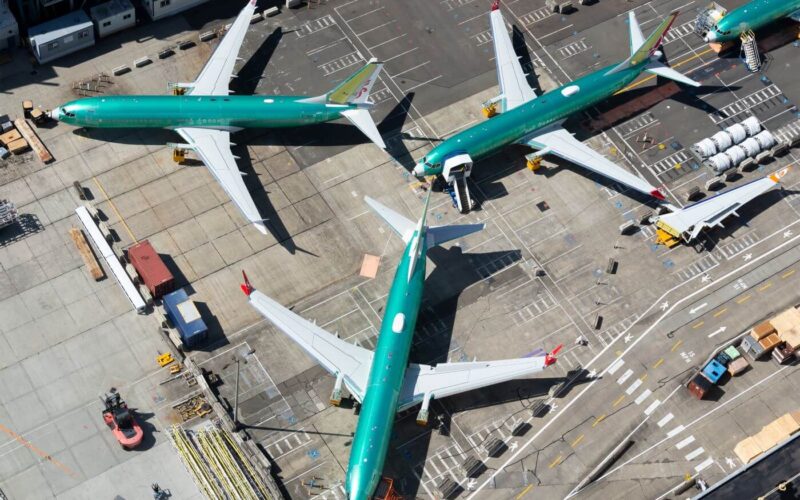In efforts to boost its authority and confidence of global regulators and the wider public, the U.S. Federal Aviation Administration (FAA) has declared it will keep full control of certifying all individual new Boeing 737 MAX aircraft, taking the reins over all aspects of the certification process of the grounded jet.
The U.S. aviation regulator states that it “has determined that the public interest and safety in air commerce require that the FAA retain authority to issue airworthiness certificates and export certificates of airworthiness for all 737 MAX airplanes,” a letter sent to Boeing by the FAA on November 26, 2019, reads, as quoted by Reuters.
Previously, the FAA and Boeing would both share the role of certifying new aircraft, where the issuing of airworthiness certificates at the final stage of production would be left for the plane maker. The FAA now says it will not allow Boeing itself to issue the airworthiness certificates that clear each new 737 MAX to fly even once the jet returns to service.
“The FAA notified Boeing today that the agency will retain authority over the issuance of Airworthiness Certificates for all newly manufactured 737 MAX aircraft,” the FAA said in a statement, as quoted by the Business Insider. “This action is in line with Administrator Steve Dickson’s commitment that the agency fully controls the approval process for the aircraft’s safe return to service.”
Under the FAA-granted organizational design approval, outlined in the Organization Designation Authorization (ODA) program, Boeing had previously had the ability to issue certificates for individual aircraft. The common practice was that once the agency certified the overall plane type, the company would be responsible for handling routine sign-offs on individual planes as they roll off the production line, ensuring they conform to all regulatory requirements.
Now, vowing to increase scrutiny over the U.S. plane maker, the FAA’s authority to certify new 737 MAX planes, however, may not be permanent. The FAA says it would retain full control of issuing the certificates until it is “confident” that Boeing has “fully functional quality control and verification processes in place” and that all regulatory standards are met, Reuters writes. In addition, the jets that have already received their individual airworthiness certificates will not have to be re-certified once the FAA issues an Airworthiness Directive (AD) allowing the plane to return to the skies.
The FAA’s reputation has been badly damaged during the ongoing 737 MAX crisis, raising suspicions of collusion between the regulator and Boeing and casting doubts over the U.S. authority’s ability to properly supervise aviation safety. A wave of criticism over the agency’s certification of the MAX, which has been grounded since March 2019 following two fatal crashes that together killed 346 people, also raised questions on whether global aviation authorities would follow the FAA’s lead in clearing the aircraft to fly again, as is custom to the industry. The European Union Safety Agency (EASA), Transport Canada, and the Directorate General of Civil Aviation of India (DGCA) have already said they would flight test and certify the MAX themselves.
In its latest update on the 737 MAX status, published on November 11, 2019, Boeing stated it is targeting Q4 of 2019 for the FAA to approve the MAX flight control software updates and have deliveries of the MAX resume in December. The plane maker hopes to see the jet cleared to fly again in January 2020, however, admits that before the MAX can be allowed to return to commercial service, it also requires the stamp of approval on the revised pilot training requirements.
In its statement, the FAA said it has not yet completed its review of the 737 MAX aircraft design changes and associated pilot training and Boeing itself still has many procedures to complete, including a certification test flight that has not yet been scheduled. At this point, U.S. airlines such as Southwest, United and American Airlines (A1G) (AAL) , have pulled (once again) MAX flights from their schedules until early March 2020.
Adding to the many questions surrounding the date and circumstances of the un-grounding of the MAX are the news of the recently leaked emails of two safety officers with Transport Canada and the FAA sharing their concerns over 737 MAX’s return to service with the MCAS system in place, suggesting the removal of the software, largely blamed for the two fatal crashes, altogether.

